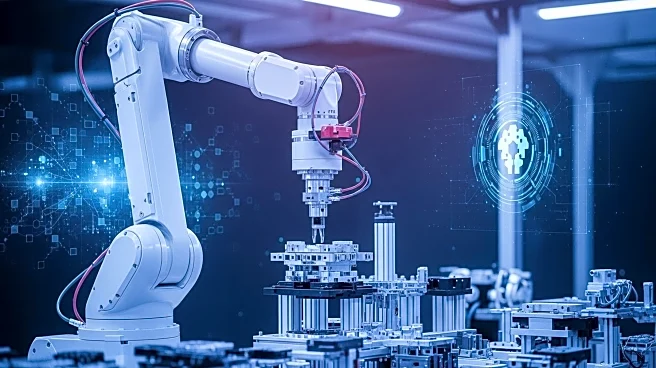What is the story about?
What's Happening?
John Callahan, CTO and president of AI company Partsol, has raised concerns about the impact of artificial intelligence (AI) on the workforce. He emphasizes that the real risk is not AI replacing jobs, but rather creating an unequipped workforce. Many companies have adopted AI without a clear strategy, leading to underwhelming results and a lack of internal expertise. Callahan notes that while AI can automate certain tasks, human skills such as creativity and emotional intelligence remain crucial. He advocates for investing in workforce skills to adapt to AI-driven changes, suggesting that roles like AI safety testers and ethics specialists are increasingly in demand.
Why It's Important?
The integration of AI into business processes is reshaping the job market, creating new opportunities while posing challenges for existing roles. Companies that fail to equip their workforce with necessary skills may face setbacks, impacting their competitiveness. The emphasis on human skills alongside AI highlights the need for balanced workforce development. As AI becomes more integral to work, professionals who adapt and embrace AI technologies are likely to succeed. This shift underscores the importance of strategic planning and education in AI to ensure a resilient workforce capable of thriving in the digital age.
What's Next?
Organizations are expected to focus on strategic AI integration, ensuring their workforce is equipped with relevant skills. This includes investing in education and training to prepare employees for evolving roles. Companies may also explore partnerships with educational institutions to develop AI-focused curricula. As AI continues to evolve, ongoing adaptation and learning will be crucial for both individuals and organizations to remain competitive. The demand for AI-related roles is likely to grow, prompting businesses to prioritize workforce development and strategic planning.
Beyond the Headlines
The ethical implications of AI adoption are significant, as companies must navigate the balance between automation and human involvement. Ensuring AI tools are safe and fair requires human judgment, highlighting the importance of roles focused on AI ethics and safety. The cultural shift towards AI integration may also influence workplace dynamics, requiring organizations to foster environments that support continuous learning and adaptation. Long-term, the successful integration of AI could lead to enhanced innovation and productivity, benefiting both businesses and employees.















